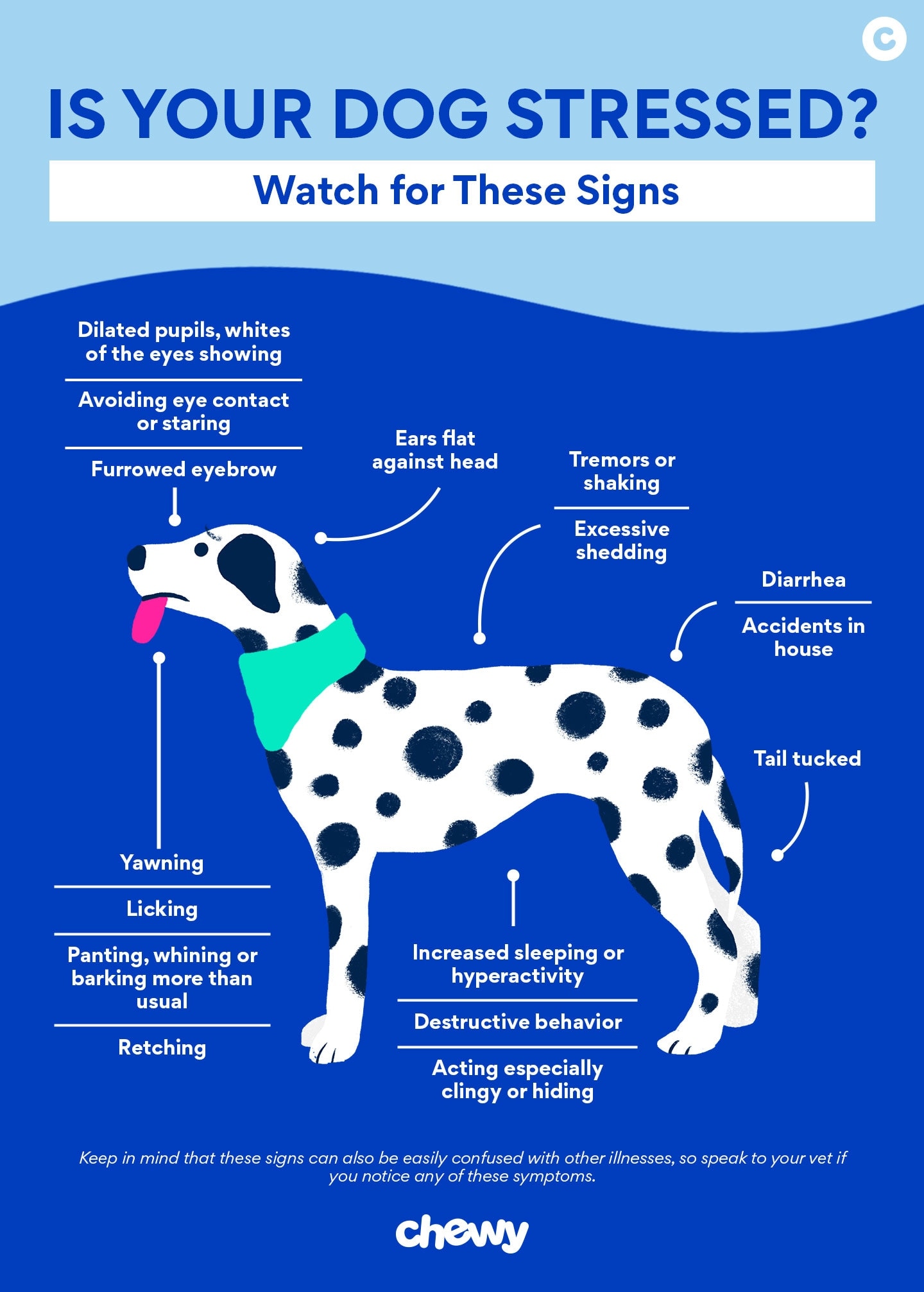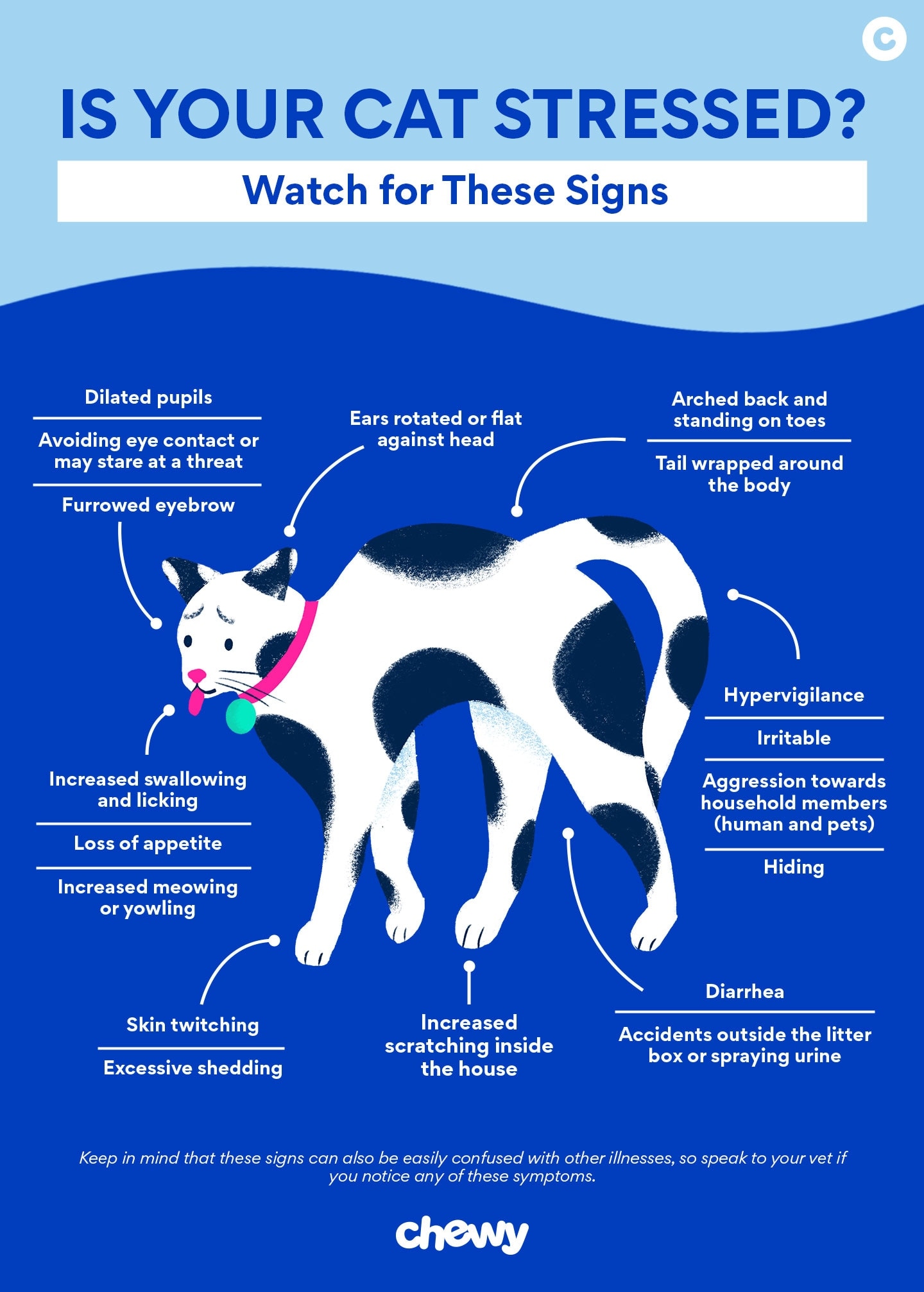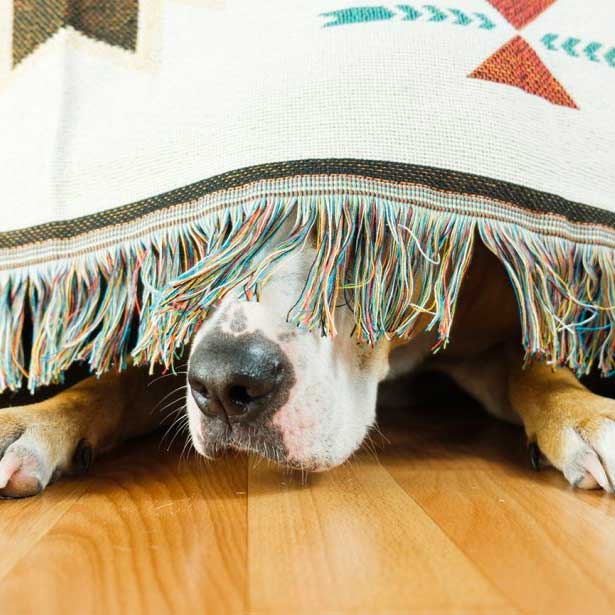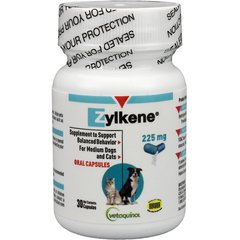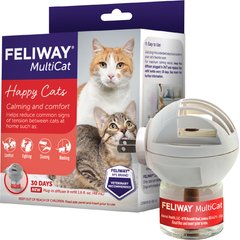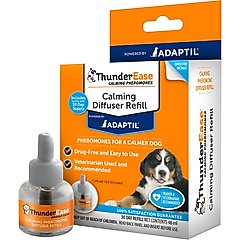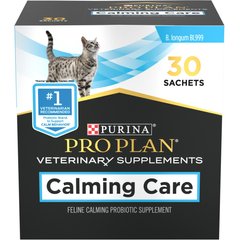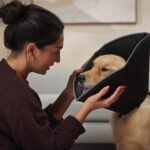The Ultimate Guide to Calming Your Stressed Pet
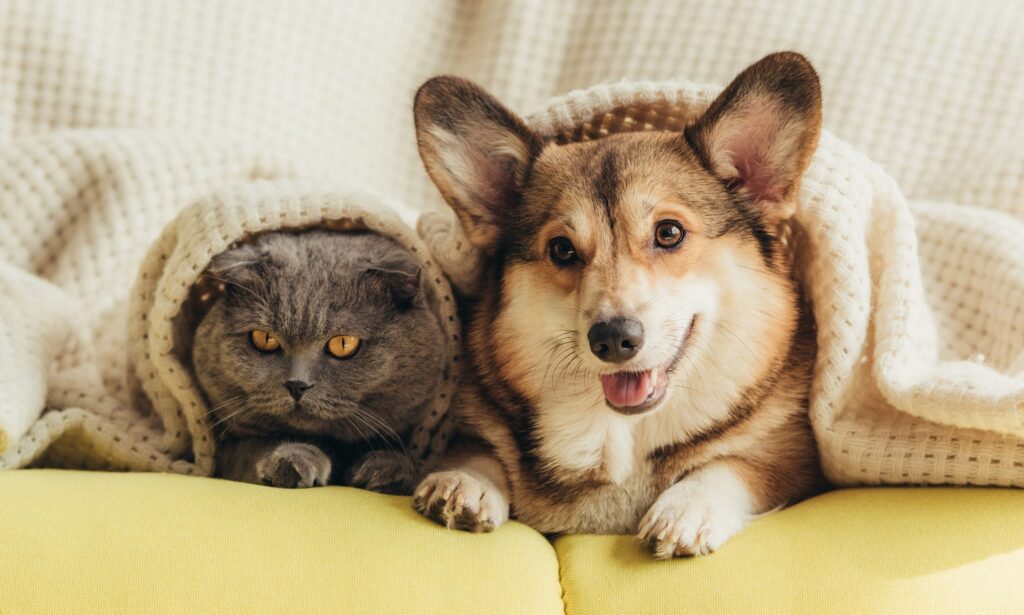
Photo by Photo: iStock.com/LightFieldStudios
When you see your pet scared and shaking, your instinct as a pet parent is to soothe and calm them. But when your hugs and cuddles aren’t doing the trick, what’s the next best solution? And how do you know what is the source of the stress and anxiety, so you can help prevent it in the future? That’s where this calming guide comes in handy.
Ahead, we’ll break down the various common causes of stress and anxiety—from separation anxiety to fears and phobias, like loud fireworks and spooky storms—and offer vet-recommended solutions to help calm your stressed pet.
Remember to consult with your veterinarian before trying any calming aid—they can help you rule out any medical causes for stress and anxiety before you pursue behavioral therapies.
What Does Stress Look Like in Pets?
Is Your Dog Stressed? Watch for These Signs
- Dilated pupils, whites of the eyes showing
- Avoiding eye contact or staring
- Ears flat against the head
- Furrowed eyebrow
- Tremors or shaking
- Yawning
- Licking
- Tail tucked under the body
- Loss of appetite
- Retching
- Diarrhea
- Accidents in the house
- Excessive shedding
- Panting, whining, or barking more than usual
- Increased sleeping or hyperactivity
- Destructive behavior
- Acting especially clingy or hiding
Keep in mind that these signs can also be easily confused with other illnesses, so speak to your vet if you notice any of these symptoms.
Is Your Cat Stressed? Watch for These Signs
- Dilated pupils
- Avoiding eye contact or may stare at a threat
- Ears rotated or flat against the head
- Furrowed eyebrow
- Arched back and standing on toes when very stressed
- Tail wrapped around the body
- Increased swallowing and licking
- Skin twitching
- Loss of appetite
- Diarrhea
- Accidents outside the litter box or spraying urine
- Excessive shedding
- Increased meowing or yowling
- Hypervigilance
- Irritable
- Aggression towards household members (human and pets)
- Increased scratching inside the house
- Hiding
Keep in mind that these signs can also be easily confused with other illnesses, so speak to your vet if you notice any of these symptoms.
What’s Causing the Stress? And How Can I Help?
Fear, separation anxiety and age-related changes are some of the most common causes of stress and anxiety in pets.
Fear
Fireworks and storms are loud, unexpected and feel like a threat to dogs and cats. But these noise phobias are not the only cause of fear and anxiety in pets. Trips to environments they’re not used to (or straight-up don’t like), like the vet or groomer, or traveling in the car, plane or train can also cause fear-related anxiety. Here are some ways to help.
While Traveling:
For Fireworks:
For Storms:
For Trips To the Vet:
Separation Anxiety
In addition to being separated from their pet parent or family (due to changes in work schedules, for example), separation anxiety can also be triggered by limited enrichment at home (think playtime, exercise and bonding with the pet parent) and changes in your pet’s routine. Here’s how to help your pet manage separation anxiety-related stress.
In Dogs and Puppies:
In Cats and Kittens:
Aging
As pets age, they can suffer from cognitive decline. In dogs, this is referred to as cognitive dysfunction syndrome (CDS), and in cats, feline cognitive dysfunction (FCD). This is similar to dementia in humans.
In pets with CDS or FCD, they may experience an increase in anxiety, irritability, stress and fear due to sensory, memory and awareness decline. Here’s how you can help.
For Dogs:
Try These Other Solutions at Home
- Create a Zen Space for Your Dog to Alleviate Anxiety
- This Piña Colada Inspired Mutt Mocktail May Help Relieve Doggy Anxiety
- 5 Toys to Help Ease Separation Anxiety in Dogs
- How to Calm a Cat Using Pheromones
- The Best Cat Calming Aids to Help Soothe Your Feline Friend
- The Best Dog Calming Aids to Ease Stressful Situations
- De-Stress Your Pets With Relaxing Music for Cats and Dogs
Calming Products To Shop
Shop best-selling, top-reviewed, vet-recommended calming products for dogs and cats. Consult your vet before giving your pet new products.
Recommended Products

